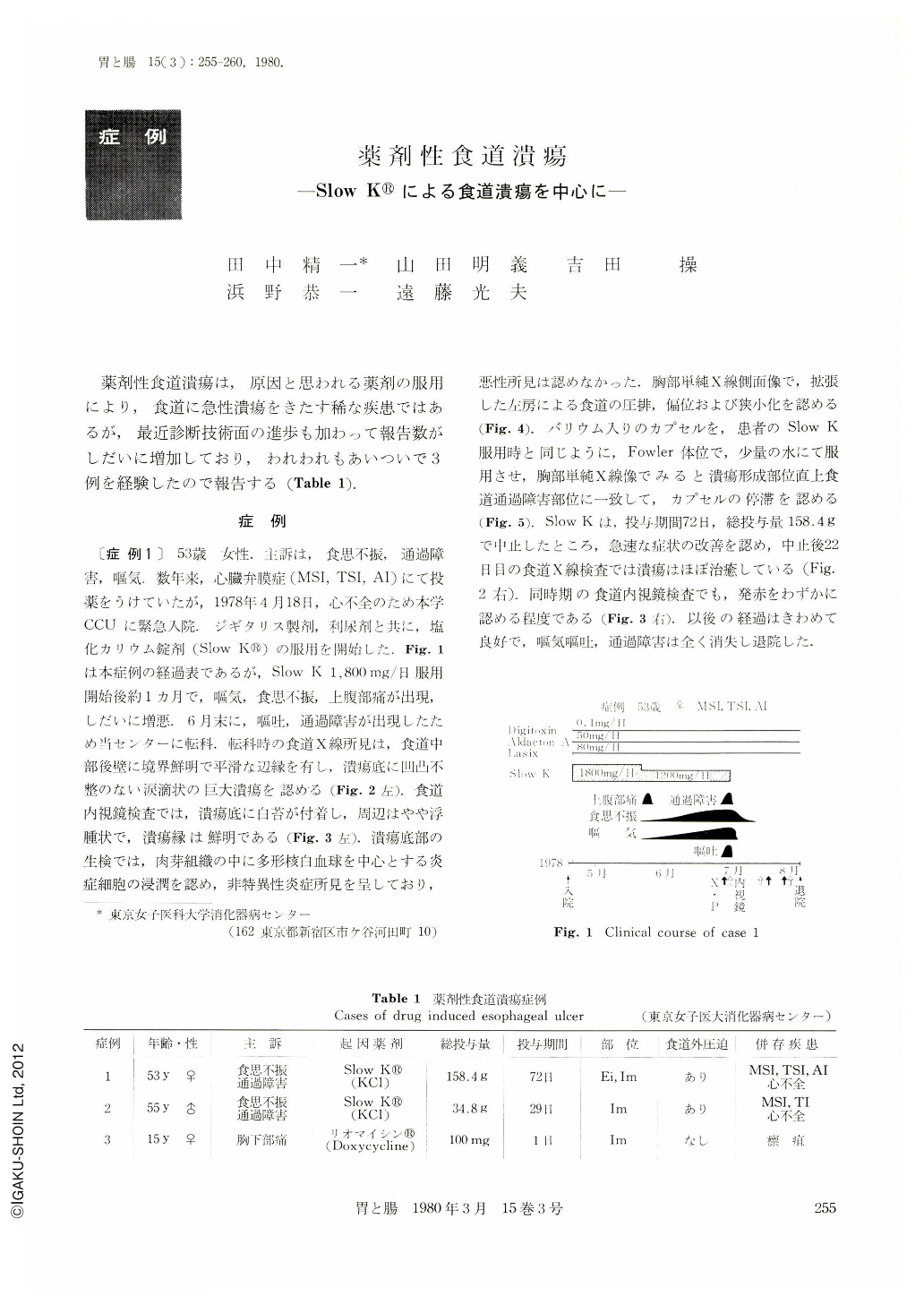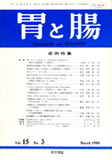Japanese
English
- 有料閲覧
- Abstract 文献概要
- 1ページ目 Look Inside
薬剤性食道潰瘍は,原因と思われる薬剤の服用により,食道に急性潰瘍をきたす稀な疾患ではあるが,最近診断技術面の進歩も加わって報告数がしだいに増加しており,われわれもあいついで3例を経験したので報告する(Table 1).
Incidence of drug-induced esophageal ulcer has been infrequent in the past, but with remarkable improvement of diagnostic procedures such as esophagofiberscopy or x-ray studies, clinical report of the disease has increased recently. Three cases are discussed.
1) Age
Case 1: 53 year-old female
Case 2: 55 year-old male
Case 3: 15 year-old female
2) Causative drugs
Case 1 and 2: KCl preparation (Slow-K®) administered as a replacement therapy of digitalis and diuretics.
Case 3: Tetracycline preparation (Doxycycline) for treatment of felon.
3) Course of onset
Case 1: Oral administration of Slow K® for 72 days (total doses 158.4 g) caused anorexia followed by dysphagia.
Case 2: Oral administration of Slow K® for 29 days (total closes 34.8 g) caused anorexia followed by dysphagia.
Case 3: Oral administration of Doxycycline for only 1 day revealed severe retrosternal chestpain.
4) Diagnosis
For case 1 and 2, x-ray studies and endoscopy showed punched-out deep esophageal ulcer just above the site where the esophagus is narrow, due to compression of dilated left atrium.
Case 3 indicated no esophageal stenosis. Acute esophageal ulcer at midesophagus was shown on x-ray studies and endoscopy. Histologic study of bite biopy in all cases showed severe nonspecific ulcerative esophagitis.
5) Treatment
Ceasing of causative drugs improved symptoms and all cases were cured. Antacid preparations and anticholinergic drugs were administrated. Tablets of Slow remained at the site just proximal to stenotic portion of the esophagus, and released KCl solution for several hours. Topical toxic activity of KCl solution on esophageal mucosa resulted in acute esophageal ulcer distal to the stenosis.
The oral administration of Doxycycline just before going to bed at night may cause sticking of the capsule on the esophageal mucosa and acute esophageal ulcer. Severe acidity of Doxycycline solution for a long time on prone position results in damage of esophageal mucosa and acute esophageal ulcer.
Patients with esophageal stenosis compressed by the enlarged heart or other organs neighboring the esophagus should take drugs with sufficient water if possible. Powder or granule preparations are preferable and causative drugs must be withdrown if druginduced esophageal ulcer is suspected. study and esophagofiberscopy are useful for accurate and early diagnosis of the disease.

Copyright © 1980, Igaku-Shoin Ltd. All rights reserved.


